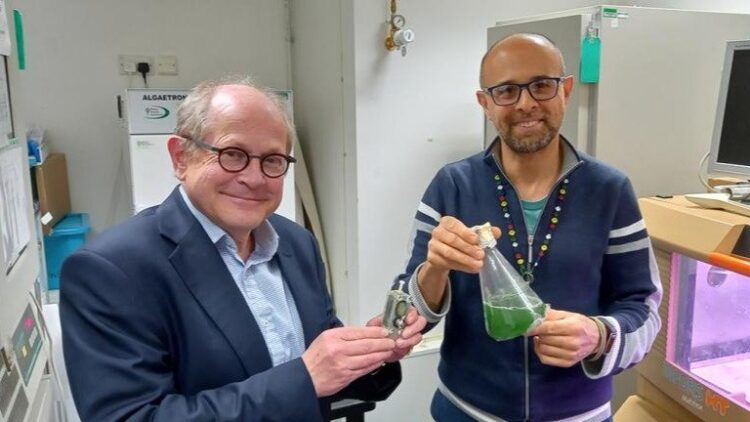We currently have a pretty reliable list of renewable energy sources available to us. Solar power, hydroelectricity, wind energy, the works. Recently, scientists have discovered a new green source of energy, both figuratively and literally.
A group of researchers was able to make a microcomputer that contains algae and uses the power of photosynthesis to run, which opens up a ton of future avenues regarding plant use within tech.
Scientists have made a discovery that could change computing forever.

Researchers from the University of Cambridge have been using algae to power a low-energy computer chip for six months now!
The setup is roughly the size of an AA battery. It was left on a windowsill where the algae could photosynthesize and thus create a small current of electricity that powers the chip in the unit.
The capsule was originally built as a proof of concept.

However, with its success, the creators hope that algae-powered chips could become more common in the future of Internet of Things devices, which are physical devices that exchange data with other devices over the internet, like your computer or your phone.
Using algae-powered chips over other methods has its advantages.

For one, it has less of an environmental impact than both traditional batteries and solar-powered ones. Photosynthetsized chips could also potentially provide continuous power, making them a source of renewable energy.
What did they manage to do with this pond water computer?

It was powering a relatively small ARM Cortex-M0+ chip and was used to perform some very basic calculations just to prove its computing power. It only consumed 0.3 microwatts of power an hour, a mere sliver of what the average desktop requires to run.
Of course, scientists expected that they’d have to scale things up for practical use.

They’re still extremely pleased with where the project is at currently.
“We were impressed by how consistently the system worked over a long period of time — we thought it might stop after a few weeks but it just kept going,” Dr. Paolo Bombelli, the first author of the paper, said in a press statement.
They also have a lot of hope for the future of this tech.

Professor Christopher Howe, the joint senior author of the paper, said, “The growing Internet of Things needs an increasing amount of power, and we think this will have to come from systems that can generate energy, rather than simply store it like batteries. Our photosynthetic device doesn’t run down the way a battery does because it’s continually using light as the energy source.”
We’re still ways away from algae energy being commonplace.

However, this research is still extremely promising. Though currently not at its most efficient, there’s plenty of room for this new bio-electrical method to grow and develop in ways that are beneficial to our planet and us, its residents.
h/t: The Verge



















































